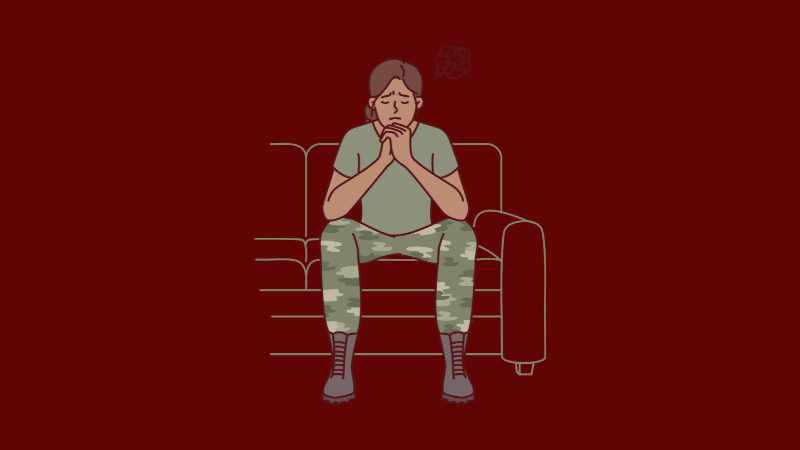Table of Contents
Affiliate link notice: As an affiliate of BetterHelp and other third-party vendors, We will receive compensation if you make a purchase using the links provided on this page. For more information, visit our disclosure page.
Play therapy has emerged as a powerful therapeutic approach that utilizes the innate language of play to address emotional, behavioral, and developmental challenges in children.
In this essay, we will explore the profound impact of play therapy on children’s lives, highlighting its role in promoting emotional well-being, fostering growth, and facilitating healing. By creating a safe and supportive environment, play therapy enables children to express themselves, process difficult experiences, and develop essential skills.
Join us as we delve into the transformative power of play therapy and its lasting effects on children’s mental health and development

Understanding Play Therapy
Play therapy is a specialized form of therapy that acknowledges and embraces the natural inclination of children to engage in play. It provides a therapeutic space where children can freely express themselves, explore their emotions, and make sense of their experiences through play. Within the play therapy setting, trained therapists utilize a range of play materials and techniques to facilitate healing and growth in children
The Benefits of Play Therapy
- Emotional Expression and Regulation: Play therapy offers a safe outlet for children to express and regulate their emotions. Through play, children can freely explore and release pent-up feelings, gaining a deeper understanding of their emotions and developing healthy strategies for emotional regulation
- Healing from Trauma and Adversity: Play therapy provides a healing platform for children who have experienced trauma or adversity. By reenacting and processing traumatic events through play, children can gradually make sense of their experiences, find empowerment, and begin the healing process
- Enhancing Social and Communication Skills: Engaging in play with a therapist or peers promotes the development of social and communication skills in children. Play therapy provides opportunities for children to practice sharing, turn-taking, cooperation, and effective communication, leading to improved social competence
- Building Self-Esteem and Confidence: Play therapy nurtures self-esteem and confidence in children. By creating an environment where children can make choices, experience success, and explore different roles, play therapy fosters a sense of competence and self-worth
- Developing Cognitive and Problem-Solving Skills: Play therapy stimulates cognitive development and problem-solving skills in children. Engaging in imaginative play, problem-solving activities, and creative expression within the therapeutic context enhances critical thinking, problem-solving abilities, and intellectual growth
- Cultivating Emotional Intelligence and Empathy: Play therapy helps children develop emotional intelligence and empathy. Through play, children explore and regulate their own emotions while also learning to understand and empathize with the emotions of others, leading to healthier relationships and emotional well-being
- Encouraging Personal Growth and Resilience: Play therapy facilitates personal growth and resilience in children. By providing a supportive and empowering environment, play therapy allows children to explore their strengths, overcome challenges, and develop adaptive coping strategies, fostering resilience for future life experiences
- Fostering Positive Parent-Child Relationships: Play therapy often involves the participation of parents or caregivers, fostering positive parent-child relationships. Through play therapy sessions, parents learn to understand and respond effectively to their child’s emotions and needs, enhancing overall family dynamics
As we continue to explore the impact of play therapy on children, it is important to acknowledge the need for greater awareness and accessibility of this therapeutic approach. By recognizing the benefits and understanding the profound effects of play therapy, we can advocate for its inclusion in mental health services and ensure that children from all backgrounds have access to this transformative intervention
There are several different types of play therapy, each with its own unique approach and techniques. Here are some commonly used types of play therapy:
- Child-Centered Play Therapy: This approach emphasizes the child’s autonomy and self-expression. The therapist provides a safe and supportive environment where the child is free to choose toys and play materials to engage in unstructured play. The therapist follows the child’s lead, actively listening and reflecting their feelings and experiences.
- Cognitive-Behavioral Play Therapy: This type of play therapy integrates cognitive-behavioral techniques into the therapeutic play process. The therapist helps the child identify and challenge negative thoughts and behaviors through play activities, promoting healthier patterns of thinking and coping.
- Filial Play Therapy: Filial play therapy involves the active involvement of parents or caregivers in the play therapy process. The therapist trains parents in specific play therapy techniques, enabling them to become therapeutic agents for their child. This approach enhances the parent-child relationship and promotes the child’s emotional well-being.
- Group Play Therapy: Group play therapy brings together a small group of children who share similar challenges or experiences. The therapist facilitates play activities and encourages interaction among group members. Group play therapy provides opportunities for children to develop social skills, empathy, and emotional support.
- Expressive Arts Play Therapy: This approach combines various forms of creative expression, such as art, music, drama, and movement, with play therapy techniques. Children are encouraged to use different art materials and creative outlets to express their emotions, thoughts, and experiences.
- Sand Tray Therapy: Sand tray therapy involves the use of a tray filled with sand and miniature objects. Children create scenes in the sand tray, which serve as a visual representation of their inner world and experiences. The therapist guides the child in exploring and understanding the symbolic meaning behind the scenes.
- Theraplay: Theraplay is a structured play therapy approach that focuses on enhancing the parent-child relationship and attachment. The therapist engages in playful activities with the child and parent/caregiver, promoting connection, trust, and healthy bonding.
- Narrative Play Therapy: Narrative play therapy utilizes storytelling and imaginative play to help children explore and reframe their personal narratives. The therapist encourages the child to create stories, characters, and scenarios that reflect their experiences and desired outcomes.
These are just a few examples of the different types of play therapy available. Play therapists often integrate techniques from multiple approaches based on the unique needs and goals of the child. The flexibility and adaptability of play therapy allow therapists to tailor the treatment to best serve each child’s individual therapeutic journey.
What you can do with your children
It is essential for parents, caregivers, and educators to recognize the value of play in a child’s life. Play is not merely a frivolous activity but a fundamental aspect of their development. By providing children with ample opportunities for unstructured play, we enable them to explore their creativity, develop problem-solving skills, and cultivate emotional intelligence
Incorporating elements of play therapy into everyday interactions can also have a positive impact on children’s well-being. Simple activities such as engaging in imaginative play, encouraging open-ended discussions, and fostering a non-judgmental and supportive environment can create a space for children to express their thoughts, feelings, and concerns
Final Thoughts
Play therapy has emerged as a powerful and effective therapeutic approach for children facing emotional, behavioral, and developmental challenges. By harnessing the natural language of play, play therapy enables children to express themselves, process difficult experiences, and develop crucial skills for emotional well-being and personal growth. The benefits of play therapy extend beyond the therapy room, influencing children’s lives, enhancing their relationships, and fostering resilience
As a society, we must prioritize the integration of play therapy into mental health services and support its accessibility for all children. By acknowledging the significance of play and promoting its role in children’s lives, we can empower them to navigate their emotional landscapes, develop healthy coping strategies, and thrive in their overall development. Let us continue to celebrate the power of play therapy and work towards creating a world where every child can experience its transformative benefits
References:
- Landreth, G. L. (2012). Play therapy: The art of the relationship (3rd ed.). Routledge.
- Schaefer, C. E., & Drewes, A. A. (Eds.). (2013). The therapeutic powers of play: 20 core agents of change. John Wiley & Sons.
- Bratton, S., Ray, D., Rhine, T., & Jones, L. (2005). The efficacy of play therapy with children: A meta-analytic review of treatment outcomes. Professional Psychology: Research and Practice, 36(4), 376–390.
- Gil, E. (2018). Play in family therapy (2nd ed.). Guilford Press.
- Reddy, L. A., Files-Hall, T. M., & Schaefer, C. E. (Eds.). (2005). Empirically based play interventions for children. American Psychological Association.









